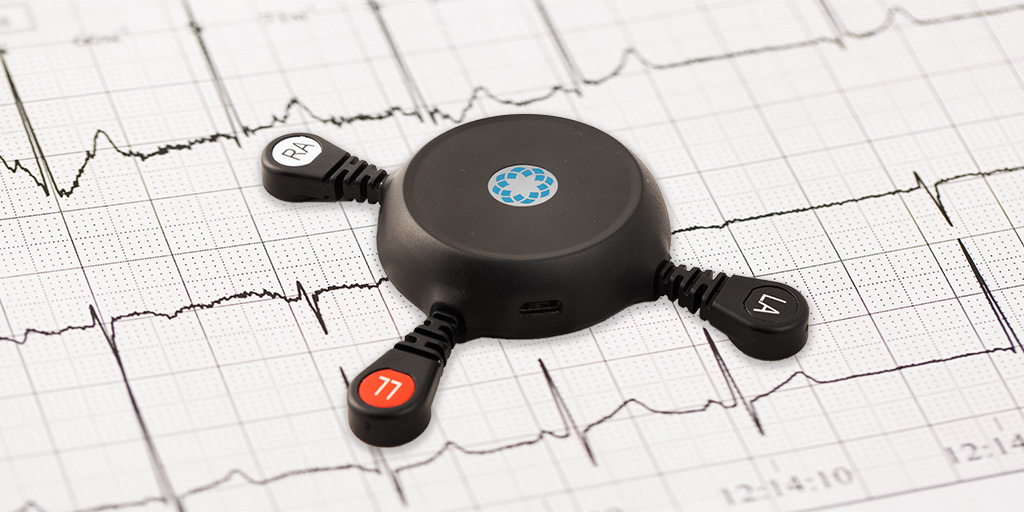In today’s world, technology has revolutionized heart health monitoring. While devices like the electrocardiogram watch with an electrocardiogram app are great awareness drivers and offer convenience for daily heart tracking, they are often not enough for those who need deeper, long-term monitoring. The electrocardiogram watch with an electrocardiogram app is limited because it is user-initiated, brief (typically 30 seconds), and restricted in the number of arrhythmias the electrocardiogram watch can detect.
For individuals concerned about their heart health or those with risk factors for cardiovascular disease, the need for comprehensive testing remains crucial. Services, like Biotricity’s HeartSecure, a 10-day direct-to-consumer all-inclusive home heart health screening service, offers a more thorough approach to understanding heart function and identifying potential risks. Learn more about the benefits of extended continuous heart monitoring, like with a 7-day heart monitor or 30-day heart monitor, below.
Understanding Heart Monitoring Devices & Limitations of Short-Term ECG Studies
The ECG, also known as an electrocardiogram monitor or EKG monitor, is used to detect irregularities in heart rhythm. The ECG is essential for individuals experiencing symptoms such as palpitations or dizziness, as the electrocardiogram monitor provides real-time insights into heart activity. However, short-term monitoring with an EKG monitor may not be sufficient to detect silent or intermittent issues that can lead to serious conditions like arrhythmias or other cardiovascular diseases.
Why Long-Term Monitoring with a 7-Day Heart Monitor or 30-Day Heart Monitor Matters
For individuals without noticeable symptoms or those who are at risk of heart disease, long-term heart monitoring through devices like a 7-day heart monitor or 30-day heart monitor is essential. Each risk factor an individual has increases their chances of developing heart disease. See the below table for some heart disease risk factors:
| Those who have high blood pressure, or hypertension |
| Those who have high blood cholesterol, or hyperlipidemia/hypercholesterolemia |
| Those who are overweight or have obesity |
| Those who have prediabetes or diabetes |
| Those who smoke |
| Those who have an unhealthy diet |
| Those who do not get regular physical activity |
| Those with a family history of heart disease |
| Women who are ages 55+ and men who are ages 45+ |
For more information, click here.
Heart diseases are difficult to diagnose because symptoms can be intermittent and individuals can be asymptomatic, especially in the early stages. While an electrocardiogram app on a smartphone or an electrocardiogram watch can provide valuable insights in the moment, they typically depend on the user to initiate the ECG study and only provide a brief snapshot of heart activity. Continuous data collected over an extended period of time, like with a 7-day heart monitor or 30-day heart monitor, is needed for a full diagnosis. A 7-day heart monitor or 30-day heart monitor provides monitoring an extended time frame for comprehensive analysis, making it possible to spot hidden and/or intermittent issues like silent arrhythmias or gradual changes in heart function.
Combining Traditional and Modern Heart Monitoring
The combination of traditional diagnostic tests and modern wearable technology is becoming increasingly common in heart health management. While electrocardiogram watch and electrocardiogram app offer convenience and allow for quick checks, they lack the continuous monitoring functionality required for those at higher risk or with ongoing heart concerns. In contrast, 24/7 monitoring from a 7-day heart monitor or 30-day heart monitor provides crucial data points that can help healthcare providers identify patterns and make more accurate diagnoses.
Extended monitoring using a 7-day heart monitor or 30-day heart monitor plays a critical role in the early detection of heart conditions. The 7-day heart monitor and 30-day heart monitor are home tests that provide detailed, ongoing tracking continuously, which is especially important for those with a family history of heart disease or other risk factors, such as high blood pressure or diabetes. Early detection can prevent serious complications and lead to more effective treatment plans. 80% of premature heart diseases and strokes are preventable.
The Convenience of Home Tests
For those seeking a more convenient way to monitor their heart health, home tests offer a practical solution. With home tests that assess heart health, individuals can easily track heart function and receive the benefits of long-term monitoring without needing to visit a clinic. Devices like the 7-day heart monitor or 30-day heart monitor are available as home tests, allowing for continuous tracking in a comfortable environment. These home tests provide the same level of diagnostic detail as traditional in-clinic tests, empowering individuals to take control of their cardiovascular health from the convenience of home.
Take Control of Your Heart Health with At Home Tests
While wearables like an electrocardiogram watch or electrocardiogram app are beneficial for day-to-day heart monitoring, they are best used in conjunction with long-term monitoring devices like a 30-day heart monitor or 7-day heart monitor. By combining both approaches, along with home test, you gain a more complete understanding of your heart’s health and can take proactive steps toward maintaining it. With the right tools and early intervention, you can reduce the risk of severe cardiovascular complications and ensure better heart health for the future. For more information, visit www.biotricity.com.






